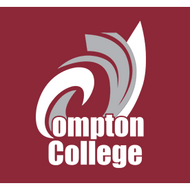Compton College OER Fundamentals Academy Resources
(View Complete Item Description)This resource includes the recordings and practice activities for the OER Fundamentals Academy which consists of four synchronous, virtual sessions:Introduction to OER Practices & Tools for Discovery Exploration of the what, why, and how of OER, highlighting use cases involving successful adoption and implementation of OER.OER Collaboration & Curation Examination of curation strategies to collaboratively identify, evaluate, organize, create, remix, and share OER to meet teaching and learning needs and priorities.OER Design & Peer Review Deep dive into designing and remixing OER for continuous improvement. Get an overview of OER authoring tool and discover how to edit, describe, and publish a resource. Share resource drafts and receive feedback.Outreach & Planning Next Steps Develop plans for future OER work, including designing and facilitating presentations and trainings, and articulating next steps for outreach and advocacy. Determination of how to best leverage OER tools and practices to continue to grow this work collaboratively throughout Compton Community College.
Material Type: Activity/Lab




















